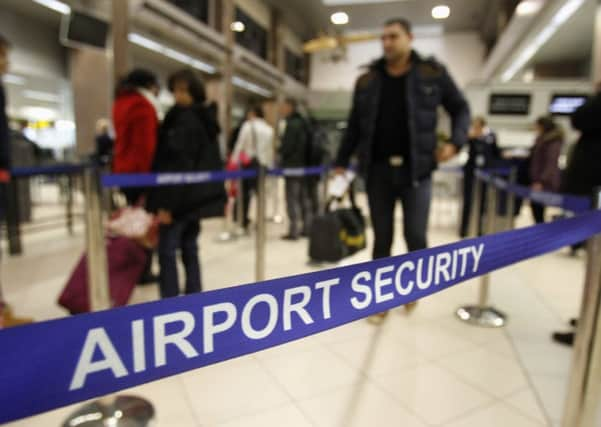Dani Garavelli: Immigration panic masks the issue


First, there were the overblown headlines predicting the departure of plane-loads of benefits-hungry Bulgarians and Romanians on 1 January (the day the regulations changed allowing all citizens of those countries to seek employment in the UK) juxtaposed with screenshots showing plenty of seats still available on cheap flights from Sofia and Bucharest. Then a handful of one-liners involving Dracula and Uncle Bulgaria neatly segued into the surreal vision of MPs Keith Vaz – already a parody of himself – and Mark Reckless forming a welcoming party for the only two new immigrants on the first flight into Luton Airport (and those immigrants defying the scrounger stereotype by already having jobs lined up).
As if that wasn’t bathos enough in the wake of all the “we’re going to be swamped” hype, there was the after-the-credits bonus of seeing Nick Griffin, a man who has devoted his life to fomenting hatred of other countries’ poor and huddled masses, being declared bankrupt. And BNP press officer Simon Darby conforming to the gormless idiot stereotype by suggesting Michael Schumacher would happily swap places with the beleaguered BNP leader. Difficult though it is to believe, that really was the week that was.
Advertisement
Hide AdAdvertisement
Hide AdLike many black comedies, the humour derived from its unfolding served only to highlight the gravity of the issue at its heart. The attempt of the far right to present the citizens of these countries as parasites bent on leeching off our welfare state is as absurd as it is repellent, but it’s also dangerous. We know from history repeating itself what happens when immigrant populations are marginalised in this way: resentments simmer, tensions mount and persecution is almost inevitable.
Sadly, unlike the most trenchant satire which deflates a particular argument or individual by exposing its shortcomings and contradictions, last week’s farcical events and the jokes they spawned amongst those who consider themselves enlightened may only serve to enflame an already-fraught situation. It’s all very well for those of us who are largely untouched by immigration to mock the rabble-rousing rhetoric of Griffin, Nigel Farage, the Daily Mail et al, but a significant proportion of the UK population – perhaps as high as 70 per cent – has real concerns over the pace of immigration, and dismissing those concerns as laughable will only reinforce the sense that those who defend immigration are smug intellectuals with no experience of the real world and that UKIP is the only party that takes ordinary people seriously.
This in turn is likely to push the Tories to consider tougher measures, such as extending the period during which new immigrants to the UK are ineligible for benefits beyond the three months proposed. The government has already introduced a six-month limit on unemployment benefits unless the applicant has a reasonable prospect of getting a job and sanctioned the deportation of anyone found sleeping rough (with no return within a year).
A more constructive approach might be to address and counter widespread misconceptions. Claims by MigrationWatch UK that 50,000 Bulgarians and Romanians a year will arrive in the UK between now and 2019 are not in themselves ludicrous – more than half a million immigrants are said to have arrived from Poland and other former Eastern Bloc countries since they joined the EU in 2004. But they can be put into context by pointing out that, back then, the UK was one of only three countries opening its doors, whereas the Bulgarians and Romanians have nine new European nations, including Germany, to choose from.
Another positive strategy might be for those of us who are pro-immigration to stop downplaying problems where they exist while emphasising that collectively immigrants pay more in tax than they consume in public services. The sooner we acknowledge that there are pockets of the UK where a sudden surge in population has put pressure on housing, or health services or schools, or where the cultural gap between different communities is proving difficult to bridge, the sooner we can set about reassessing the provision of resources, increasing cross-cultural communication and learning from previous mistakes. The advantages of a more honest appraisal of the pros and cons of immigration are manifold: it stops indigenous citizens from feeling their personal experiences are being airbrushed from history, shifts the focus from specific races or nationalities to community-wide initiatives, and deprives right-wing politicians of an opportunity to poke a festering sore.
The behaviour of those newspapers and politicians who spent the dying days of 2013 scaremongering merits all the derision it has had heaped upon it. But growing fears over immigration aren’t going to evaporate in the heat of our contempt. If those of us who believe the removal of borders creates a better, richer, more vibrant society could stop sneering and engage for a while, if we could even consider the possibility that some of the concerns voiced about immigration might be legitimate, we could reduce the pre-emptive stigmatising of those who are heading for our shores and start to think more creatively about the kind of society we would like to usher them into. «
Twitter: @DaniGaravelli1